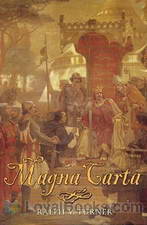|
Books Should Be Free Loyal Books Free Public Domain Audiobooks & eBook Downloads |
|
|
Books Should Be Free Loyal Books Free Public Domain Audiobooks & eBook Downloads |
|
Books on Politics |
|---|
|
Book type:
Sort by:
View by:
|
By: Augustus Bridle (1869-) | |
|---|---|
 The Masques of Ottawa
The Masques of Ottawa
| |
By: Shelby M. (Shelby Moore) Cullom (1829-1914) | |
|---|---|
 Fifty Years of Public Service Personal Recollections of Shelby M. Cullom, Senior United States Senator from Illinois
Fifty Years of Public Service Personal Recollections of Shelby M. Cullom, Senior United States Senator from Illinois
| |
By: King of the Hawaiian Islands Kamehameha IV (1834-1863) | |
|---|---|
 Speeches of His Majesty Kamehameha IV. To the Hawaiian Legislature
Speeches of His Majesty Kamehameha IV. To the Hawaiian Legislature
| |
By: Franklin Pierce (1804-1869) | |
|---|---|
 State of the Union Address
State of the Union Address
| |
By: Emma Guy Cromwell (1865-1952) | |
|---|---|
 Citizenship A Manual for Voters
Citizenship A Manual for Voters
| |
By: William Fayette Fox (1836-1909) | |
|---|---|
 Civil Government of Virginia
Civil Government of Virginia
| |
By: Millard Fillmore (1800-1874) | |
|---|---|
 State of the Union Address
State of the Union Address
| |
By: Andrew Johnson (1808-1875) | |
|---|---|
 State of the Union Address
State of the Union Address
| |
By: George Washington Julian (1817-1899) | |
|---|---|
 Political Recollections 1840 to 1872
Political Recollections 1840 to 1872
| |
By: John Tyler (1790-1862) | |
|---|---|
 State of the Union Address
State of the Union Address
| |
By: Warren G. (Warren Gamaliel) Harding (1865-1923) | |
|---|---|
 State of the Union Address
State of the Union Address
| |
By: J. W. (James William) Sullivan (1848-) | |
|---|---|
 Direct Legislation by the Citizenship through the Initiative and Referendum
Direct Legislation by the Citizenship through the Initiative and Referendum
| |
By: William Horatio Barnes | |
|---|---|
 History of the Thirty-Ninth Congress of the United States
History of the Thirty-Ninth Congress of the United States
| |
By: David Dudley Field (1805-1894) | |
|---|---|
 The Vote That Made the President
The Vote That Made the President
| |
 The Electoral Votes of 1876 Who Should Count Them, What Should Be Counted, and the Remedy for a Wrong Count
The Electoral Votes of 1876 Who Should Count Them, What Should Be Counted, and the Remedy for a Wrong Count
| |
By: Franklin Hichborn (1869?-1964) | |
|---|---|
 Story of the Session of the California Legislature of 1909
Story of the Session of the California Legislature of 1909
| |
By: T. R. (Thomas Ramsden) Ashworth (1864-1935) | |
|---|---|
 Proportional Representation Applied To Party Government
Proportional Representation Applied To Party Government
| |
By: Benjamin Lumley (1812-1875) | |
|---|---|
 Another World Fragments from the Star City of Montalluyah
Another World Fragments from the Star City of Montalluyah
| |
By: John L. (John Lewis) Ferguson (1926-2006) | |
|---|---|
 Arkansas Governors and United States Senators
Arkansas Governors and United States Senators
| |
By: Rutherford Birchard Hayes (1822-1893) | |
|---|---|
 State of the Union Address
State of the Union Address
| |
By: Joseph C. (Joseph Columbus) Manning (1870-) | |
|---|---|
 Politics of Alabama
Politics of Alabama
| |
By: Sylvester Mowry (1830-1871) | |
|---|---|
 Memoir of the Proposed Territory of Arizona
Memoir of the Proposed Territory of Arizona
| |
By: Zachary Taylor (1784-1850) | |
|---|---|
 State of the Union Address
State of the Union Address
| |
By: Whitelaw Reid (1837-1912) | |
|---|---|
 Problems of Expansion As Considered In Papers and Addresses
Problems of Expansion As Considered In Papers and Addresses
| |
By: Unknown | |
|---|---|
 Magna Carta
Magna Carta
The original document is in Latin so this can only be a fairly rough approximation of the actual content. The text used is the first version in the Gutenberg collection. – Magna Carta is the most significant early influence on the long historical process that has led to the rule of constitutional law today. Magna Carta was originally created because of disagreements between the Pope, King John and his English barons over the rights of the King. Magna Carta required the king to renounce certain rights and respect certain legal procedures and to accept that the will of the king could be bound by law. | |
By: Calista McCabe Courtenay | |
|---|---|
 George Washington
George Washington
In this biography for young people, Calista McCabe Courtenay takes the reader from George Washington the surveyor to his early military career, first as a colonel in the Virgina militia and then as a member of General Braddock'a staff during the French and Indian War. He later commanded the Virginia forces before joining the First Continental Congress. Much of the book is devoted to his campaigns during the American Revolution. At the end, we see him as President for two terms. | |
By: Upton Sinclair (1878-1968) | |
|---|---|
 The Machine
The Machine
Upton Sinclair is best known for his novel The Jungle, an expose of the meatpacking industry. He was also a playwright whose works for the stage reflected the same progressive viewpoints found in his other writing. In The Machine, published as part of Sinclair's 1912 collection Plays of Protest, Socialist activists show a rich man's daughter the truth about the society in which she has been raised. | |
By: H. G. Wells (1866-1946) | |
|---|---|
 Anticipations
Anticipations
Wells considered this book one of his most important, a natural follow-up to such works as his Man of the Year Million and The Time Machine. His goal was to get people to think and act in new ways. The book starts with a look at how humans get along socially and how they carry out their business ventures. It then discusses how these elements influence others, such as politics, the world of work, and education. H. G. tried to make clear how the current social order was disintegrating without preparing another to take its place. He then traced the roots of democracy, which in its present state he saw as unworkable. Instead, he proposed a new republic. He also critiqued modern warfare. | |
By: Elizabeth Cady Stanton (1815-1902) | |
|---|---|
 Eighty Years and More; Reminiscences 1815-1897
Eighty Years and More; Reminiscences 1815-1897
Elizabeth Cady Stanton was one of the premier movers in the original women’s rights movement, along with Susan B. Anthony, her best friend for over 50 years. While Elizabeth initially stayed home with her husband and many babies and wrote the speeches, Susan went on the road to bring the message of the women’s rights movement to an often hostile public. When black men were given the vote in 1870, Susan and Elizabeth led the women’s rights establishment of the time to withhold support for a bill that would extend to black men the rights still denied for women of all colors... | |
By: Plato (424-348 BC) | |
|---|---|
 Laws
Laws
Νόμοι (Laws) is Plato's final dialogue written after his attempt to advise the tyrant Dionysius II of Syracuse. The dialogue takes place between: an Athenian Stranger (Socrates? A god in human form?); the quiet Lacedaemonian Megillus; and the Cretan Cleinias. The Stranger asks whether humans live to be more effective at waging war or if there is something more important a legislator should seek to achieve. During their pilgrimage Cleinias discloses his role in the establishment of a new colony... | |
By: Various (1833-1884) | |
|---|---|
 John Stuart Mill; His Life and Works
John Stuart Mill; His Life and Works
This biography is actually a series of essays by prominent personalities of the time that shed light on John Stuart Mill's life and areas of endeavor. Those areas include his experiences in India House, his moral character, certain botanical explorations, how effective he was as a critic, studies in morals and the law, and discoveries concerning political economy. They also explore ideas concerning his influence on institutions of higher learning, accomplishments as a politician, and fame as a philosopher. | |
By: William Morris (1834-1896) | |
|---|---|
 Signs of Change
Signs of Change
In the 1880s William Morris, the artist and poet famously associated with the Arts and Crafts movement, left the Liberal Party and threw himself into the Socialist cause. He spoke all over the country, on street corners as well as in working men's clubs and lecture halls, and edited and wrote for the Socialist League's monthly newspaper. Signs of Change is a short collection of his talks and writings in this period, first published in 1888, covering such topics as what socialism and work should be, and how capitalism and waste developed. | |